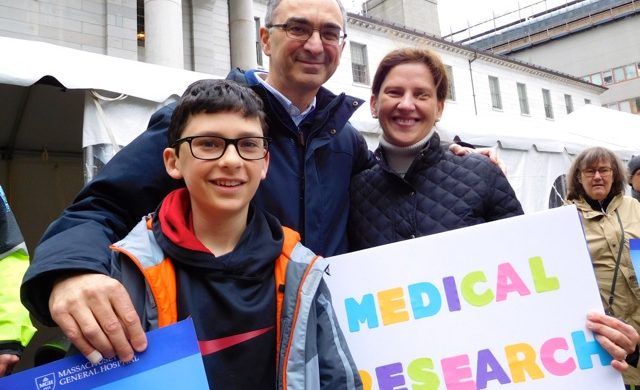More than a week has passed since scientists gathered together to march and to celebrate science and the role it plays in everyday lives. On Saturday 22 April, at the March for Science in Boston we, as VIC, were marching together with hundreds of people to stand up for science. It was truly inspirational. In many cities across the world scientists decided to champion evidence-based policy and they decided to do it on a very special day, the Earth Day. Massachusetts General Hospital was there too together with all the many scientific institutions that reside in Boston. Many science supporters were there as well, to reinforce scientists’ voices, regardless of the rain and the cold weather. It was truly moving to witness how much people care about science and how much they believe that scientific progress is in the public’s best interest.
The event was intended to be non-partisan but with an acknowledgement of the actual political agenda. The funding cuts that have been hypothesized are considered unacceptable in the scientific community. All the emphatic speeches that we heard that day, from the primary school kid to the emeritus professor, reminded us that science is not to be taken for granted and neither is its funding. Science does not just happen but it needs to be nurtured, supported and welcomed by society. Science is an important component of human kind, not only to improve our health but also to make progress for human civilization.

So now, what’s next? Most people have no idea how science actually works and this is one of the main reasons why science is always under attack. Being “pro-science” cannot be just a cultural phenomenon or an elite way of thinking. In this, scientists are guilty for not being effective communicators of the relevance and the impact of their ideas and their discoveries. There is too much confusion and misunderstanding about what scientists do and work on. VIC has decided to be proactive, not only in making science communication effective, but also as a way to reach potential donors who are non-scientists themselves. VIC indeed, does not rely only on the support of public grants, but also on the generosity of private philanthropy. And this can happen only if we can make the general public understand the role of science and the benefits for human kind. As a very first step, scientists must start communicating science effectively to make society understand the basics of their work in order to allow informed decisions to be made.





